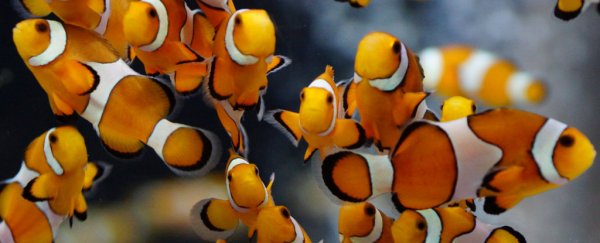A world-first review of hundreds of studies on ecological change in the world's oceans suggests a global alteration of the marine ecosystem due to increasing CO2 emissions will result in the collapse of the food chain as we know it.
"This 'simplification' of our oceans will have profound consequences for our current way of life, particularly for coastal populations and those that rely on oceans for food and trade," said Ivan Nagelkerken, a marine ecologist at the University of Adelaide in Australia and co-author of the study.
While the majority of existing ecological studies looking at the effects of global warming on ocean life tend to focus on individual subject areas, the researchers in this instance took a broader approach, analysing the data of 632 studies covering a wide range of ocean environments, ecosystems, and marine species.
"We know relatively little about how climate change will affect the marine environment. Until now, there has been almost total reliance on qualitative reviews and perspectives of potential global change. Where quantitative assessments exist, they typically focus on single stressors, single ecosystems or single species," said Sean Connell, a professor in ecology and environmental science and co-author of the paper.
"This analysis combines the results of all these experiments to study the combined effects of multiple stressors on whole communities, including species interactions and different measures of responses to climate change."
The macro perspective afforded by the researchers' method doesn't paint a positive picture for marine life – or those who rely on it. On the whole, the authors find there will be "limited scope" for species to successfully acclimate to warmer waters and increasing acidification of the world's oceans, leading to large reductions in the diversity and abundance of sea life.
At the bottom of the food chain, plankton are expected to thrive, but greater abundance of this food source won't translate to other animals higher up in the chain, such as zooplankton and smaller fish, leading to a drastic breakdown in overall food supply, according to the researchers.
"With higher metabolic rates in the warmer water, and therefore a greater demand for food, there is a mismatch with less food available for carnivores ─ the bigger fish that fisheries industries are based around," Nagelkerken said. "There will be a species collapse from the top of the food chain down."
While there's very little to feel positive about in this research, let's hope the publication of such alarming findings helps galvanise global efforts to reduce CO2 emissions and lessen the impact of this ecological damage.
The research is published in PNAS.
